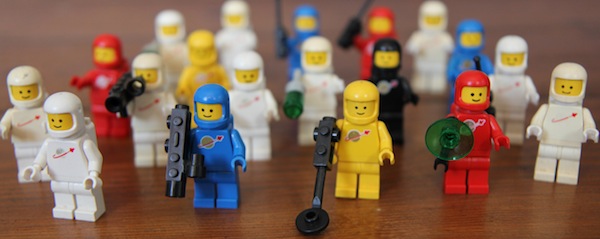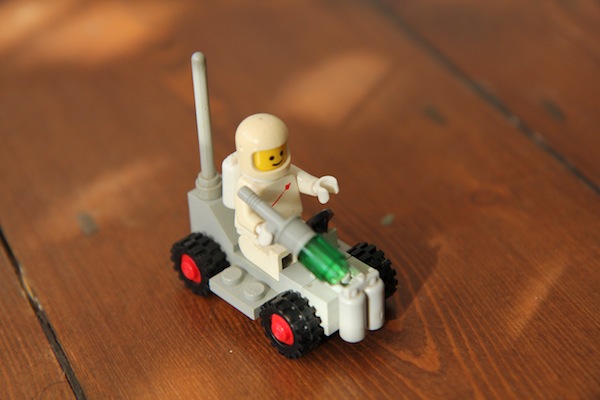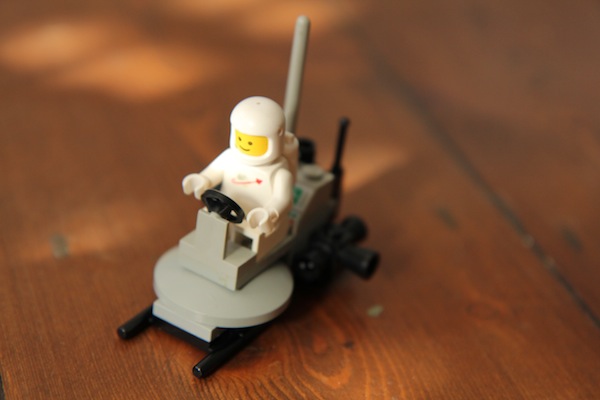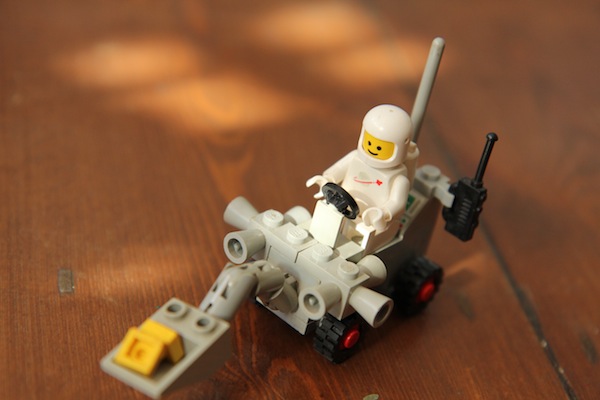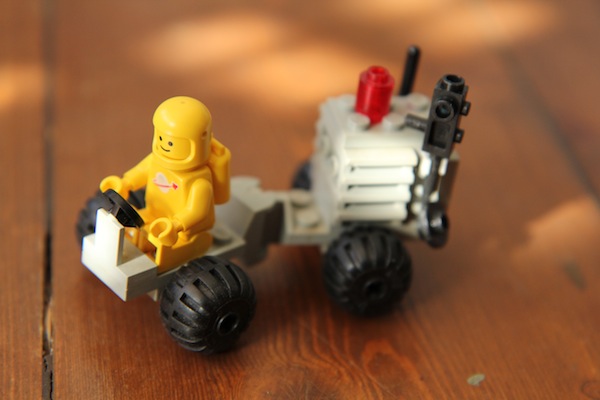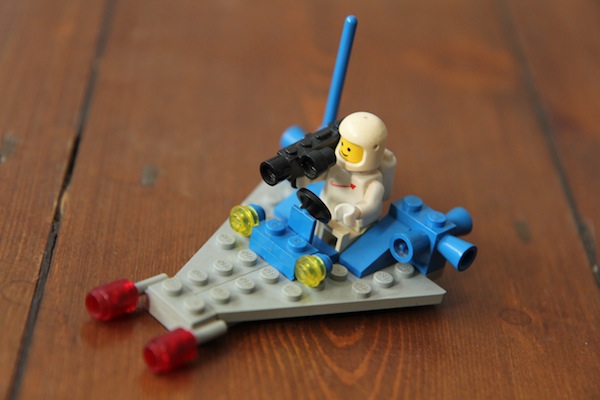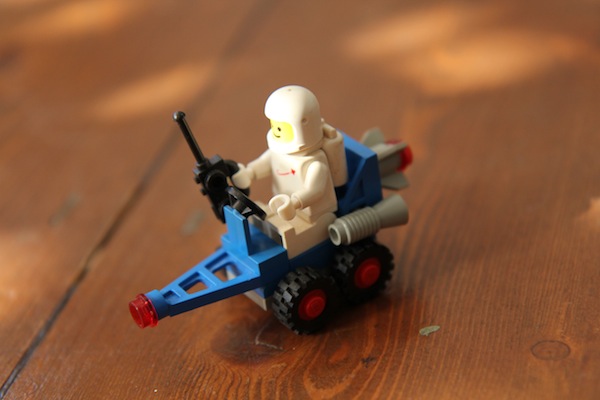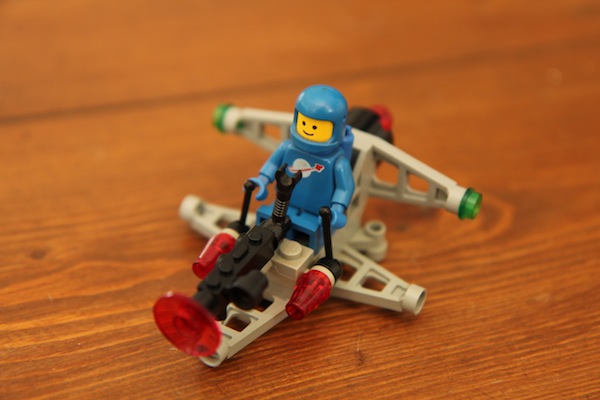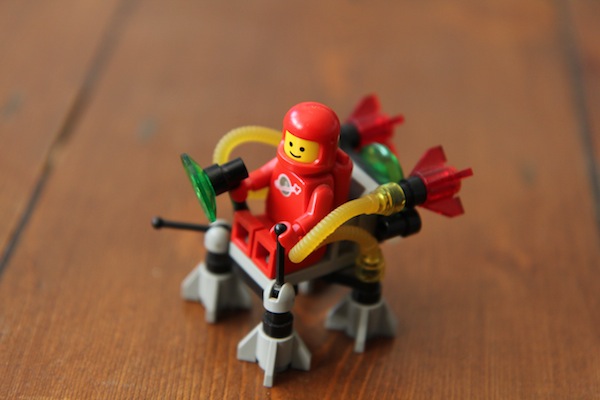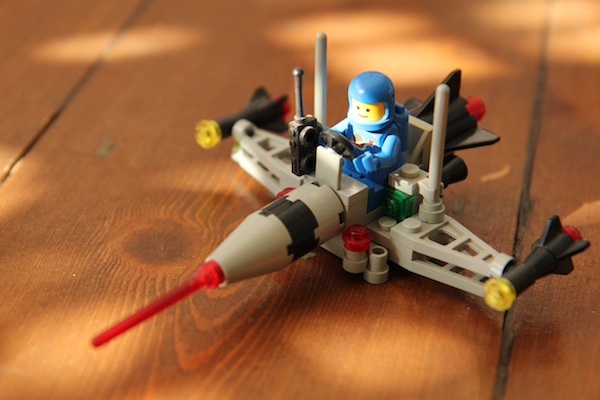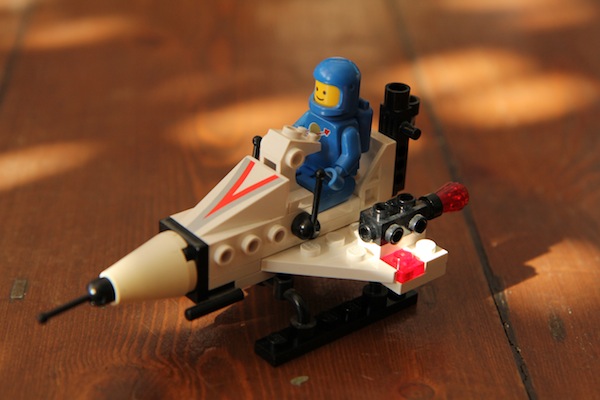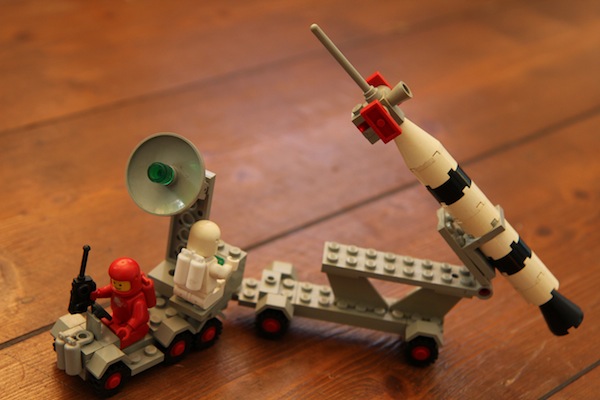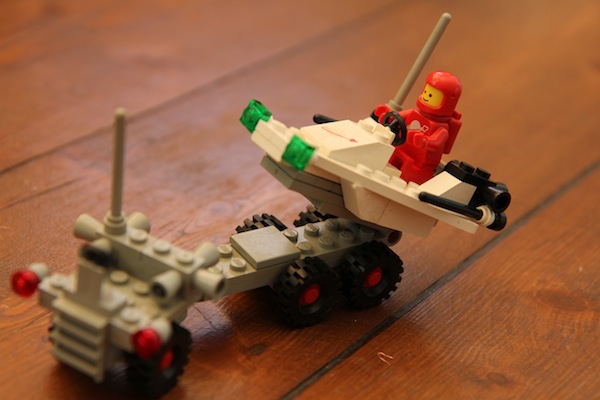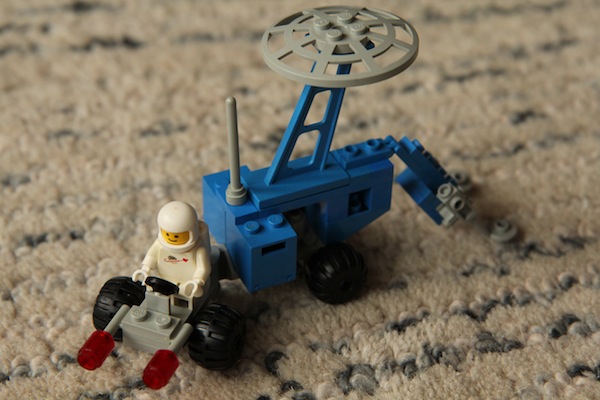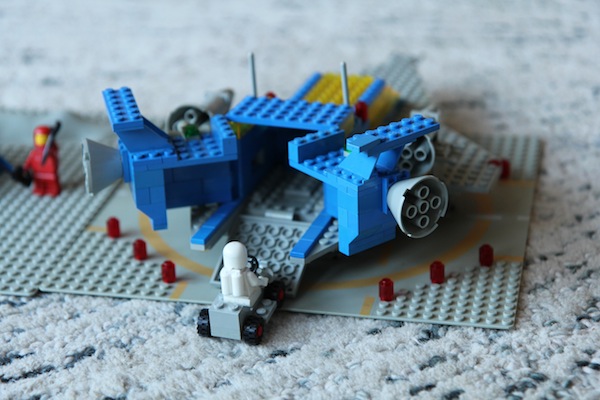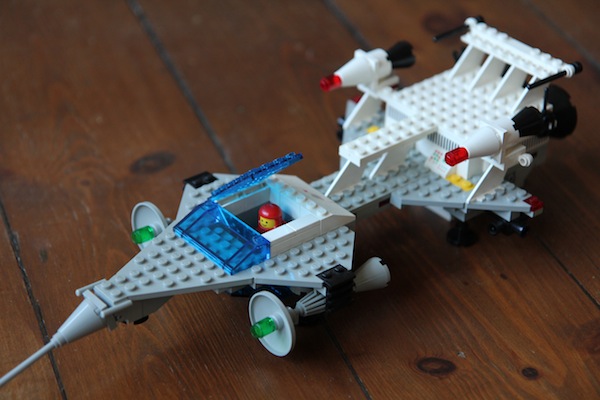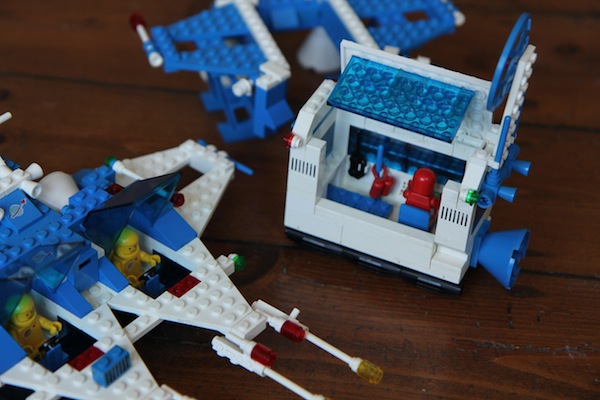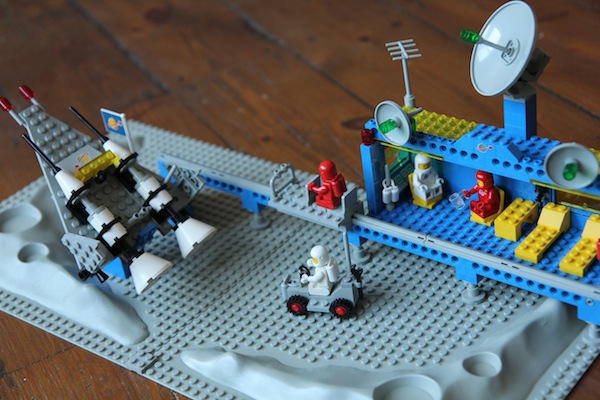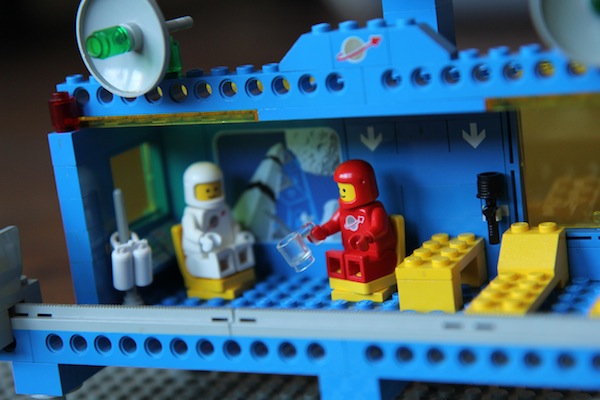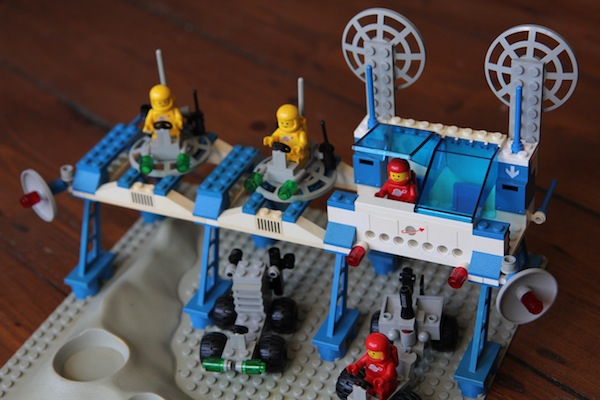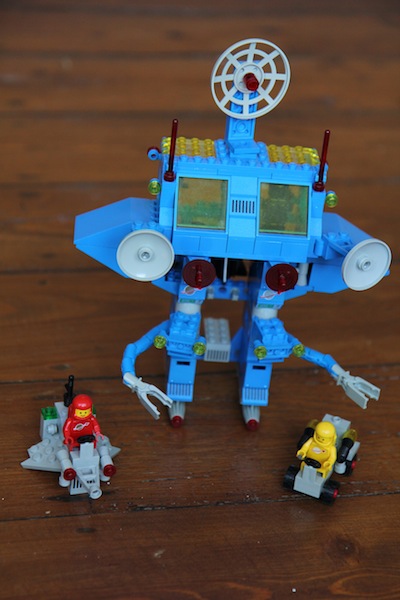Back in 1979 the first brave Lego space men appeared, ready to explore the Lego universe. Their space ships were a distinctive blend of grey and blue, with white becoming popular later on. There was a lot of clever use of existing parts before a lot of customised parts were available.
The space men themselves came in a range of colours. I don’t know if they conveyed rank or job in any way, but those with the white uniforms seemed the most numerous, so they must have been the lowest ranked. In my little world the rank went something like this: white, yellow, red, blue, black. Similar to martial arts belts, come to think of it.
They had a number of tools, radios, spanners, guns, metal detectors, etc. Mostly all black, but sometimes grey and very occasionally white or blue. Computers tend to come in two basic types on slopes – one with lots of buttons and one with a screen and fewer buttons.
Given the huge array of different sets in the classic space theme, unlike in the various sub-themes, there are multiple of each different “class” of set (e.g. small ship, big ship, small buggy, big buggy, base, etc) which vary in style over the years.
The little Space Buggy was one of the first space sets released, and was the first Space set that I owned. It started the decades-long love affair with Space Lego for me.
Its flying counterpart is, for some reason, called the Moon Buggy.
Obviously, should you need to do any shovelling of moon rocks, space dust or perform any extra-terrestrial road repairs then you need the Shovel Buggy.
The Surface Transport is very useful for transporting such moon rocks, etc, around once they have been dug up.
A few years later saw the release of the Space Patrol…
… and the Surface Rover.
These were followed, in a quest for more colour and flashy bits, by the Astro Dasher…
… and the Surface Hopper.
Moving up to small-to-medium sized space ships, we have the Space Dart…
… and the Starfire I. A recent enquiry has revealed that the Starfire II was cancelled after years of delays and overrunning budgets.
In space, rockets are obviously essential and finding the correct place from which to launch them is almost as important. Hence the Mobile Rocket Launcher gives the would-be rocket scientist a lot of flexibility!
And the same goes for launching probes with the mobile Space Probe Launcher!
The Seismologic Vehicle is a strange-looking vehicle, with its detection equipment pointing down towards the ground rather than up towards the stars like most of the space sets do, quite understandably.
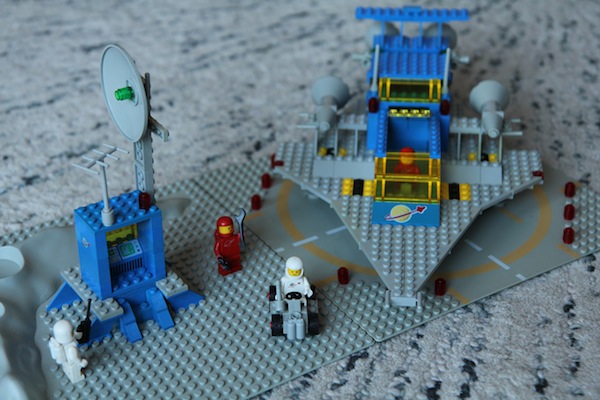 The first of the big space ships was the Galaxy Explorer, resplendent in grey and blue with yellow windows and a launch pad and control station. Note the very fragile spoked antenna on the roof of the control booth: not many of these survive intact! The two computer types are visible inside the booth too.
The first of the big space ships was the Galaxy Explorer, resplendent in grey and blue with yellow windows and a launch pad and control station. Note the very fragile spoked antenna on the roof of the control booth: not many of these survive intact! The two computer types are visible inside the booth too.
The back of the Galaxy Explorer opens up to allow the buggy to park inside and be flown away to, obviously, explore the galaxy.
The Galaxy Explorer is built up very cleverly with many different sized plates, giving it a great feel and profile, which are not immediately obvious in photographs.
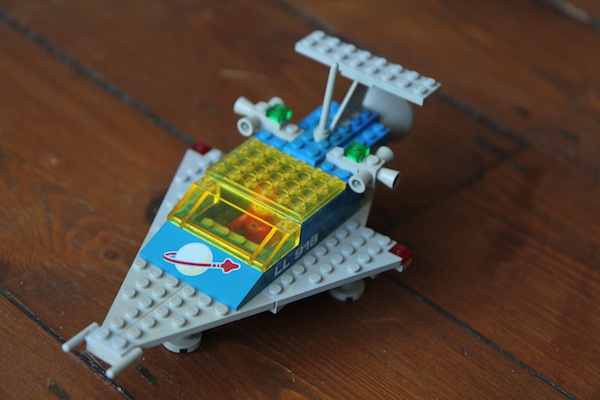 The Space Transport is a small to medium sized space ship, which has quite a boring name but is really cool in that it looks like the Galaxy Explorer‘s little brother.
The Space Transport is a small to medium sized space ship, which has quite a boring name but is really cool in that it looks like the Galaxy Explorer‘s little brother.
A medium-sized space ship, the excellently named Starfleet Voyager brings a modernised look, with a lot of white replacing most of the blue. Its Concorde-like nose can tilt down to allow the pilot a better view on take-off and landing.
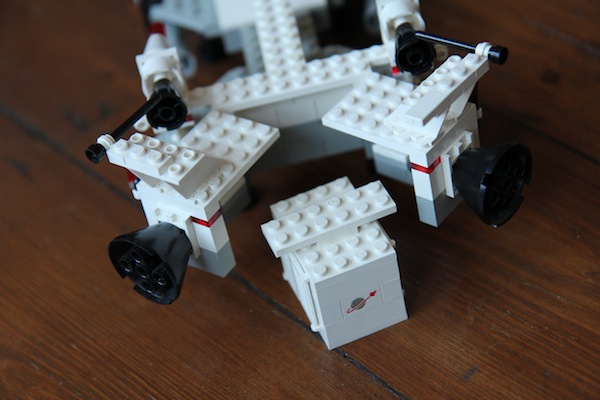 Like many of the medium and large ships, it can carry a payload.
Like many of the medium and large ships, it can carry a payload.
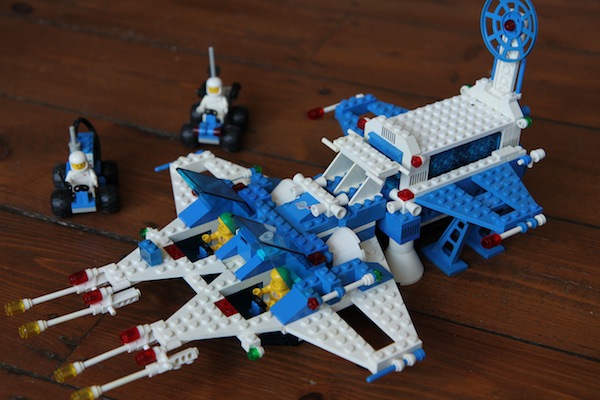 If you aspire to be in command of the Lego galaxy, you will definitely need the Galaxy Commander. Further modernised, and built entirely in blue and white with lots of flashy bits, this looks a little like a predecessor of the Ice Planet series. It ties with the Galaxy Explorer as my favourite Classic Space set.
If you aspire to be in command of the Lego galaxy, you will definitely need the Galaxy Commander. Further modernised, and built entirely in blue and white with lots of flashy bits, this looks a little like a predecessor of the Ice Planet series. It ties with the Galaxy Explorer as my favourite Classic Space set.
This large space ship, with two pilots and two support engineers, can carry a mobile lab around and drop it anywhere that it is required.
Of course, we need a base or two…
First up is the Beta I Command Base. I am not sure if there was an Alpha I base or even a Beta II, but that is not important right now. This base features a building complete with beds and chairs (and tea cups) for the little space men to relax. It has a space ship launch pad too, and because they are so relaxed from sitting on the chairs and lying on the beds and can’t possibly walk all the way over to the space ship, there is a little monorail to transport them there. There is also a little buggy, probably for making doughnuts in the moon dust.
The Space Supply Station comes complete with two small shuttle type space ships and two buggies. It is raised high off the ground for… er… important reasons. And to allow the buggies to park underneath it, because that is cool.
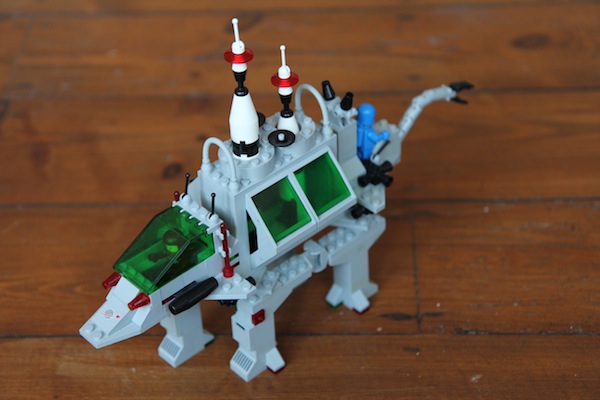 If you have an alien moon on which to stalk, you obviously need an Alien Moon Stalker. A great piece of engineering, this allows rockets to be launched from inhospitable parts of alien moons (potentially also planets) that would be inaccessible by wheeled transport. The lead and trailing sections can detach to fly around and scout and/or defend the area.
If you have an alien moon on which to stalk, you obviously need an Alien Moon Stalker. A great piece of engineering, this allows rockets to be launched from inhospitable parts of alien moons (potentially also planets) that would be inaccessible by wheeled transport. The lead and trailing sections can detach to fly around and scout and/or defend the area.
Another unusual vehicle is the Robot Command Center. It has a small buggy and a small space ship that can park inside it or detach to explore (and maybe also command) the area.

